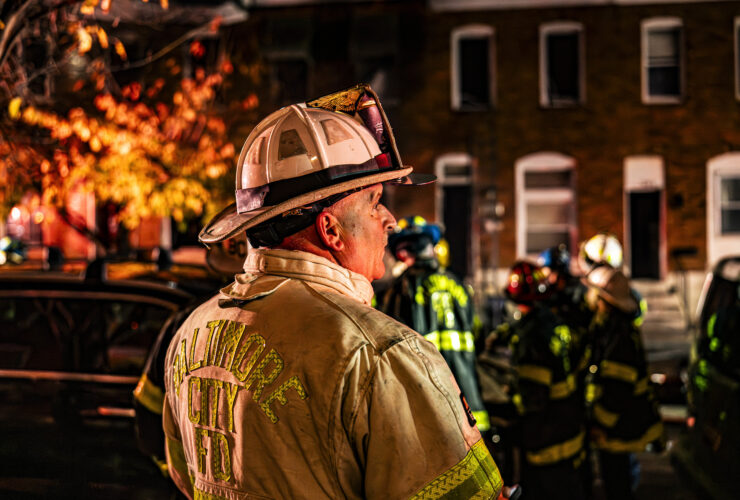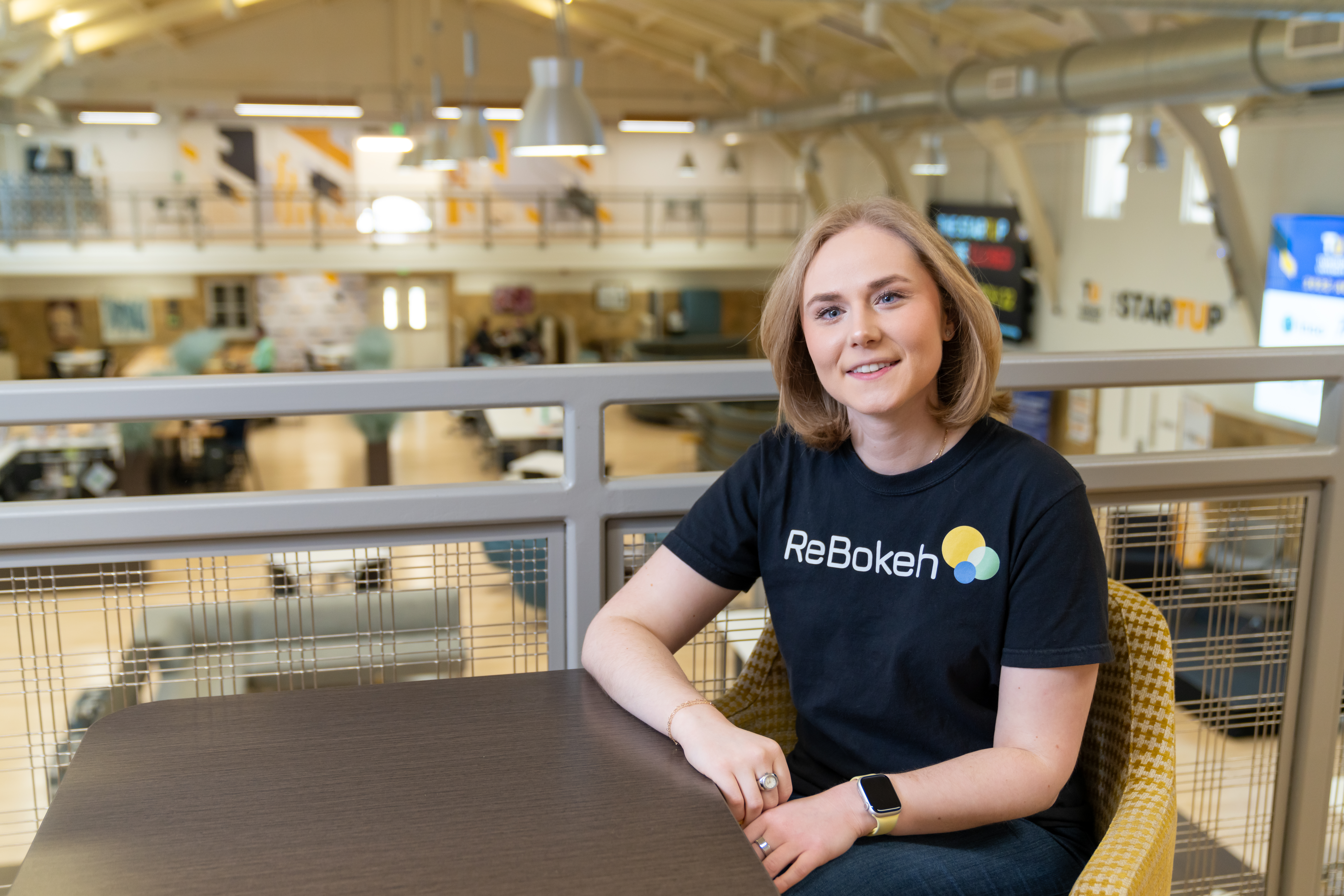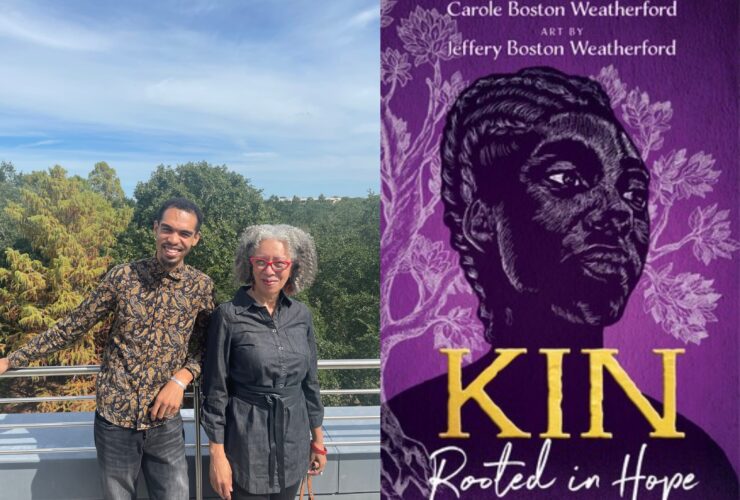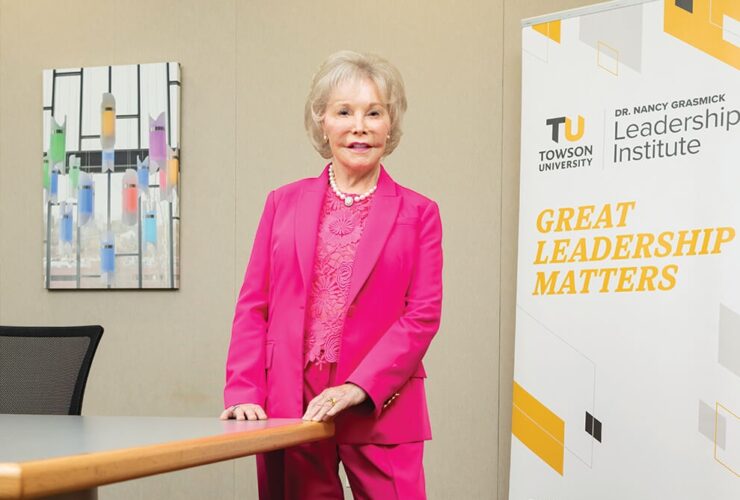
How to Help
How to Help
How to Help
Christianna McCausland
and Jacob Took

So you want to donate your time or money—or both—to a charitable cause. But where to begin? And which of the many worthy causes are not just legit, but run efficiently?
For that matter, which of the challenges facing the metro area should you focus on? You have lots of choices: homelessness, gross inequities in education, shortages of affordable housing, a lack of job training, few options for underprivileged inner-city youth, and a thriving and deadly drug trade.
So in the pages that follow, we offer a little bit of a primer not just on public charities, but on the region’s best-known foundations, as well as big, national nonprofits that are active here. We also offer some tips on what to look for in a charity—and even how to start your own.
We’re not going to tell you which charity to get involved with—but we can help you make an informed decision.
Founded on Philanthropy
Baltimore has many homegrown charitable foundations. Here are some of the largest, as determined by assets:
Abell Foundation
Year founded: 1953 as The A.S. Abell Company Foundation
History: Begun by Harry Black, chairman of the board of the A.S. Abell Company, which once published The Baltimore Sun.
Mission: The largest private foundation exclusively serving Maryland, its grants support seven broad areas of interest: education, workforce development, health and human services, community development, criminal justice and addiction, environment, and the arts.
The Annie E. Casey Foundation
Year founded: 1948
History: Jim Casey, the founder of UPS, and his siblings began the foundation in Seattle, Washington, and named it in honor of their mother, a widow who struggled to raise her four children. The headquarters moved to Baltimore in 1994.
Mission: To improve the lives of disadvantaged children, their families, and communities.
Baltimore Community Foundation
strong>Year founded: 1972
History: BCF was founded by the leaders of five Baltimore-based banks, inspired by the idea of a community foundation that would bring together diverse people with no affiliation or special cause.
Mission: To help Baltimore thrive by investing in nonprofits that support investment in neighborhoods and education.
France-Merrick Foundation
Year founded: 1988
History: Jacob France, founder of The Equitable Trust Company, began his foundation in 1959; Robert G. Merrick, Sr., a board member and president of France’s foundation, as well as president of the Maryland Title Securities Company, began his own foundation in 1962. In 1998, the two foundations merged into the France-Merrick Foundation.
Mission: The foundation strives to improve the quality of life in Maryland, particularly the Baltimore region, in six program areas: civic and culture, community and economic development, conservation, education, health and human services, and historic preservation.
The Harry & Jeanette Weinberg Foundation
Year founded: 1959
History: Billionaire businessman Harry Weinberg began the foundation to help poor and vulnerable populations. When he and his wife, Jeanette, died, their fortune endowed today’s grant-making entity.
Mission: To improve the lives of low-income and vulnerable people by supporting organizations that provide direct services in housing, health, jobs, and education. Grants are primarily made in priority communities tied to the life of the Weinbergs and their trustees including Baltimore, Chicago, Hawaii, and Israel.
T. Rowe Price Program for Charitable Giving
Year founded: 2000
History: A national, donor-advised fund, the program was created to give individuals and corporations a means to initiate, invest, and distribute charitable gifts.
Mission: Participants (initial investment is $10,000) gain immediate tax benefits along with the flexibility to recommend grant disbursements to charities.

Well-Known National Charities
The Big Boys Who Are Helping Here:
United Way
Its programs and support of other nonprofits focus on education, income, and health.
The Salvation Army
Meets human needs with community-specific programs to combat a host of challenges, from homelessness and addiction to disaster relief and domestic abuse.
Habitat for Humanity
Offers stability and self-reliance by building or renovating safe, affordable homes.
Boys & Girls Clubs of America
Creates safe, inclusive club spaces for young people in need so they can reach their full potential as productive citizens.
YMCA of the USA
Dedicated to developing the full potential of individuals with special emphasis on programs for youth development, healthy living, and social responsibility.
Special Olympics
Born in the early 1960s from the work of Eunice Kennedy Shriver, it provides sports training and athletic competition for children and adults with intellectual disabilities.
Charity Checkpoint

When you make a donation to a charity, you expect the cash to go to a cause in which you believe. Yet in an era of well-crafted scams, how do you ensure a nonprofit is what it seems?
While websites like CharityNavigator.org are helpful, their listings aren’t comprehensive and often exclude small, local charities, says Heather Iliff, president and CEO of Maryland Nonprofits, a member organization that promotes standards of excellence for nonprofits. She likes the idea of giving locally, not only because you can see the impact in your community, but also because you can build a more meaningful relationship with the charity.
“First-hand knowledge is always the best,” she says. “Ask your friends and neighbors where they volunteer or if they are on boards at local groups.”
Here are Iliff’s other tips for checking out a charity:
- Attend an event, such as a golf outing or a gala. Start a relationship with a group.
- Check out Guidestar.org and look for a charity’s Form 990, the IRS form that provides the public with financial information about a nonprofit organization, or ask the organization to provide you a copy.
- Look for a seal on the website from an accrediting body, or you can ask if the organization is accredited.
- The Secretary of State maintains a searchable database of Maryland nonprofit organizations in good standing: https://sos.maryland.gov/Charity/Pages/SearchCharity.aspx
- Read the annual report. While not legally bound to provide an annual report, organizations that do are showing a commitment to financial transparency.
- Look for warning signs that a charity may not be in good standing—or a nonprofit at all: They include not listing key staff and the board of directors, a board of directors that’s tiny (seven to 12 members is average), and no information provided confirming its 501c3 status.
Creating Your Own Charity
What to Do—and What to Avoid—When Starting a Nonprofit.

Do you have a personal mission in life, or feel called upon to serve and help others? Maybe you have an idea that will address the needs of your community, or maybe you want to support a cause that’s important to you? Are you thinking about starting a nonprofit?
That’s great, says Paddy Morton of Woodberry-based Maryland Nonprofits, which offers resources to support the state’s nonprofit sector—but first, double-check that your nonprofit concept isn’t too similar to any of the group’s roughly 1,100 current member organizations. “The truth is, there are too many nonprofits in the state and across the country that are not successful,” says Morton, who adds that there are more than 32,000 nonprofits in Maryland. “There might be an organization out there that’s already doing what you want to do, and you might do better to join forces with them.”
“There is a tremendous generosity of spirit, locally and across the state. Folks are motivated by altruistic purposes to help their neighbors.”
Morton, who works with social entrepreneurs looking to dive into the nonprofit sector, has received nearly 200 requests for start-up assistance in the past 18 months. Not everyone follows through, often because Morton’s questions make them reconsider their ideas, which she sees as a healthy process. For those ready to put their money where their mouth is, Morton helps prepare them for the grind ahead. “Our desire is to help them reach their zenith—the high point of their life-cycle growth trajectory—and stay there as long as possible,” she says.
Maryland Nonprofits offers a $1,200 start-up package, in which Morton and her colleagues guide nonprofit leaders through the process of incorporation, applying for tax-exempt status, and putting other necessary preparations in place to get their organizations off the ground. According to Morton, recruiting board members and securing financial resources are the biggest challenges faced by young nonprofits. “If you don’t have a budget,” she cautions, “you can’t get anything done.”
After working through the first steps with Morton, burgeoning nonprofit leaders can take advantage of the Nonprofit Development Center, through which Maryland Nonprofits offers free support for nonprofits fewer than 10 years old with budgets below $750,000.
A big part of Morton’s work boils down to problem-solving and helping to guide entrepreneurs through both planned and unexpected challenges. She said that working with such a wide range of nonprofits reminds her of the goodness in human nature. “There is a tremendous generosity of spirit, locally and across the state. Folks are motivated by altruistic purposes to help their neighbors,” she says. “It gives me such hope for our community.”





